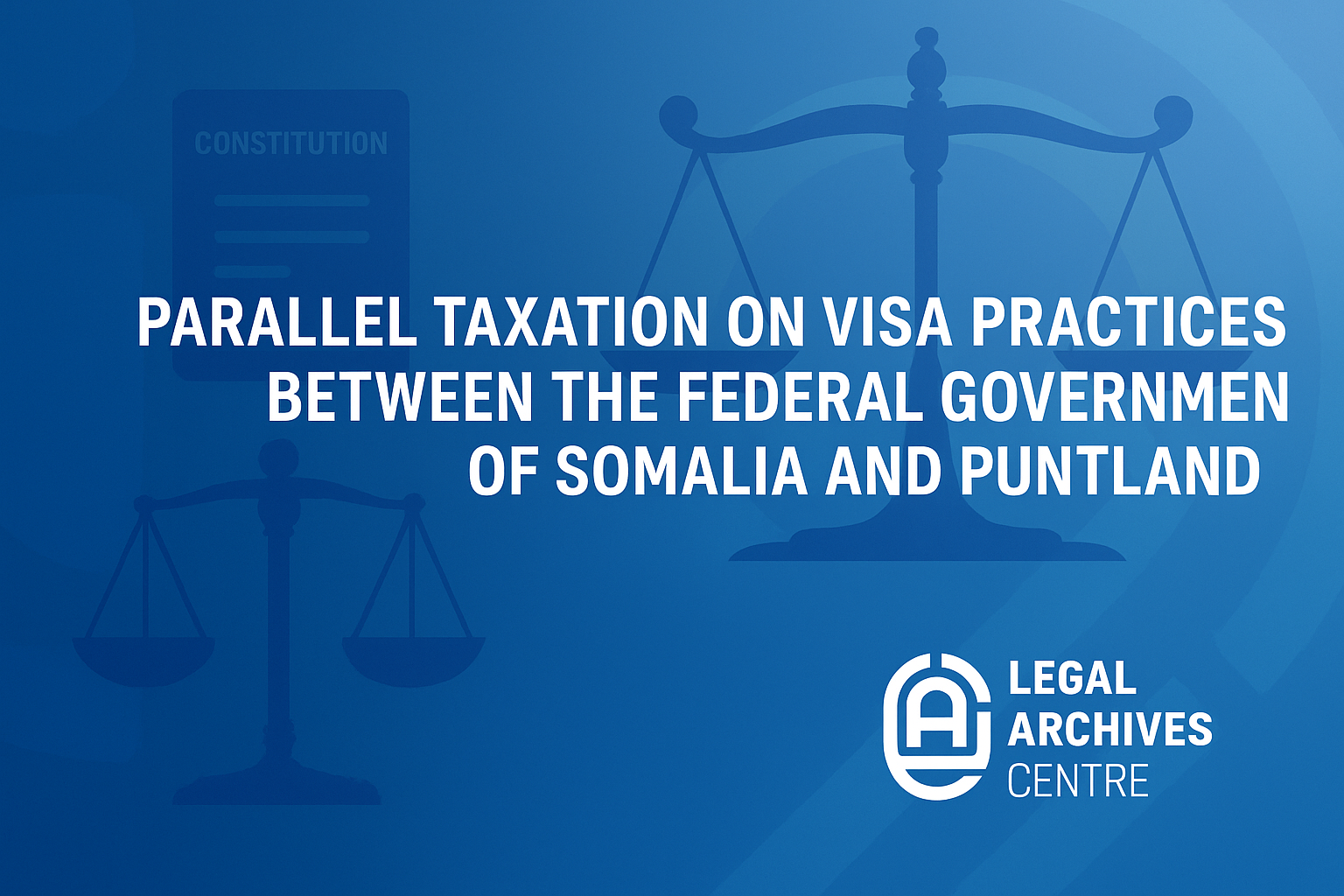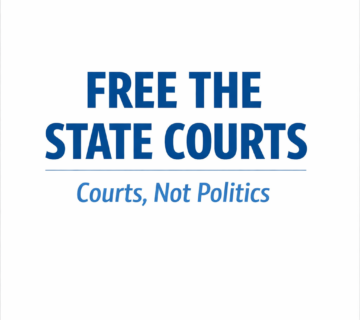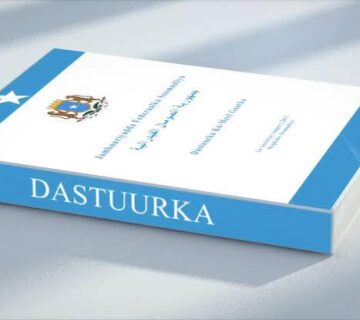INTRODUCTION
The Federal Government of Somalia (FGS) has recently launched an online visa system obliging all foreign nationals including members of the Somali diaspora to pay a uniform fee of USD 60. On 28 August 2025, authorities announced this major change in immigration policy, stipulating that it would take effect from 1 September 2025. With only four days between announcement and enforcement, the measure raises important concerns about administrative reasonableness, institutional readiness, and fairness to travelers, particularly those who had already made travel plans under the previous system.
The core principle of federalism rests on the distribution of powers between the central government and its sub-national units. Among these, certain competences including defense, foreign affairs, immigration, and citizenship are consistently reserved to the federal authority in order to preserve national uniformity, safeguard sovereignty, and guarantee equal treatment of all citizens. This allocation is expressly affirmed in Article 54 of Somalia’s Provisional Constitution, which vests such powers exclusively in the Federal Government. Yet in fragile federations, these core functions often become points of contestation.
In Somalia, the practice of parallel taxation through visa charges has become a lived reality for diaspora and non-citizens. Mohamed Keynan’s testimony illustrates that ‘‘despite having lawfully obtained and paid for online visa, i was forced to pay again 60 dollars at Garowe airport. Mothers with children, business travelers, and returning diaspora faced similar burdens. This is more than an inconvenience; it represents a breach of rights, a misuse of federalism, and an example of how political disputes are externalized onto diaspora or citizens. The Somali diaspora plays a critical role in the national economy, with remittances accounting for 16.7% of the country’s GDP in 2022, according to World Bank data. These financial transfers are essential for covering basic necessities such as food, education, and healthcare. Each year, Somalis abroad contribute an estimated $1.3 billion in remittances.[1]
Disputes between the Federal Government of Somalia and its Member States consistently place the burden on ordinary citizens. For example, in Jubaland, airlines were barred from operating due to disagreements between federal and regional authorities, disrupting the movement of people and goods. In Puntland, political disputes over the national high school examinations led to students being denied federal certificates if they did not sit for the centrally administered tests. Taxation also frequently results in duplication, forcing citizens and businesses to pay twice.
Implications of Double Visa Payments and Human Rights
While there is no distinct international legal framework that grants special rights to “diasporas” as a group, individuals within diaspora communities remain protected under the general body of international human rights law applicable to all persons. These protections derive from core human rights treaties, as well as instruments such as the International Convention on the Protection of the Rights of All Migrant Workers and Members of Their Families although Somalia has not ratified this Convention.
The recently adopted New York Declaration for Refugees and Migrants acknowledges the relationship between diasporas and their countries of origin, but only in a limited sense emphasizing primarily the role that diaspora communities can play in contributing to the development of their homelands.[2]
It is worth noting that the central government and the federal system have historically taken divergent approaches toward the diaspora. The former did not recognize dual nationality, requiring individuals to renounce their previous citizenship in order to acquire Somali nationality. By contrast, Article 8 of the current Federal Constitution expressly recognizes the right to dual citizenship. As dual citizens, Somalis abroad have an inalienable right to re-enter their country without arbitrary restrictions. Charging them visa fees whether federally ($64) or regionally (Puntland’s $60) treats them as foreigners, contrary to their recognized constitutional status.
This contradiction is also at odds with Somalia’s obligations under international human rights law. Under Article 12(4) of the International Covenant on Civil and Political Rights (ICCPR), no individual may be arbitrarily deprived of the right to enter their own country. Similarly, Article 12(2) of the African Charter on Human and Peoples’ Rights guarantees that every citizen has the right to leave and to return to their country. By forcing Somalis abroad to pay duplicative visa fees, federal and state authorities are not merely creating financial obstacles but also infringing on a fundamental human right.
In practice, this means:
- Parallel Revenue Systems: Competing authorities impose overlapping charges at checkpoints, ports, and airports, leaving travelers and traders subject to multiple fees without legal clarity.
- Administrative Fragmentation: Essential documents such as business licenses, vehicle registrations, or academic certificates are sometimes issued differently at federal and state levels, creating confusion and undermining national cohesion.Instead of a unified framework for revenue collection, both the Federal Government and Federal Member States impose overlapping or competing charges. This has fostered competition over resources, weakened fiscal cohesion, and turned citizens and diaspora into the main casualties of political disputes.
- Erosion of Trust: Ordinary Somalis lose faith in both federal and state institutions when governance appears focused on revenue extraction rather than service delivery, deepening public disillusionment with the very idea of federalism.
Key Challenges in Somalia’s Federalism
- Lack of Judicial Enforcement: Somalia lacks a fully functional constitutional court or other effective judicial mechanisms to resolve disputes between the Federal Government and Federal Member States. As a result, unconstitutional practices such as parallel visa fees or duplicative taxation persist unchecked, leaving citizens without remedies.
- Legal Fragmentation: Each Federal Member State and the central government issue laws, regulations, and directives that are valid only within their own territories and do not carry authority beyond their borders. This patchwork of legal regimes means that the Federal Government lacks effective reach and cannot exercise uniform authority across the whole of Somalia.
- Federal Members Acting as Independent States: In practice, Federal Member States frequently behave as though they were sovereign entities rather than components of a federal union. For instance, Puntland recently issued unilateral directives strengthening trade relations directly with Ethiopia, including tax exemptions for trucks arriving through the Garacad or Bosaso port[3] Similarly, it has imposed steep tariffs on goods imported from Somaliland, setting a 100% duty on essential items such as food, fuel, and aviation gas, and a 200% duty on non-essential goods including office supplies, household furniture, and electrical appliances.[4] Such actions bypass the Federal Government and reflect the fragile nature of Somalia’s federation, where member states exercise foreign, trade, and fiscal powers more typical of independent states among others.
Finally, the parallel visa fees dispute between the Federal Government and Puntland demonstrates Somalia’s fragile federalism. It burdens citizens and diaspora with double taxation, undermines constitutional rights, and breaches international human rights obligations. Root causes include weak judicial enforcement, fragmented revenue systems, and Federal Member States acting like independent states. Without reform, Somalia risks entrenching predatory federalism that extracts from, rather than protects, its people.
[1] Abdirahman Bashir Shariff and Aieshwarya Davis, ‘Empowering Somalia’s economy beyond remittances for long-term stability’ (2025) at https://blogs.worldbank.org/en/nasikiliza/empowering-somalias-economy-beyond-remittances-for-long-term-stability-afe-0225.
[2] Larissa van den Herik, ‘Diasporas and International Law’ (2018), European Society of International Law, Volume 7, Issue 6 at https://esil-sedi.eu/wp-content/uploads/2018/09/ESIL-Reflection-van-den-Herik.pdf.
[3] Warsom, ‘Puntland authorities have declared that trucks from Ethiopia’s Somali Regional State (DDS), impacted by the Macawaley conflict, will be exempted from entry taxes’ (2024), at https://warsom.com/wararka/2025/01/maamulka-puntland-oo-shaaciyey-in-ay-canshuur-dhaaf-u-sameynayaan-gaadiidka-ismaamulka-dds-ee-dagaalka-dacawaley-saameeyeen. Translated into English Version
[4] Deeq A, ‘Puntland Imposes Excessive Taxes on Goods Imported from Somaliland’ (2019), Somali Online News at https://www.somaliaonline.com/community/topic/142025-puntland-oo-canshuur-xad-dhaaf-ah-kusoo-rogtay-badeecadaha-laga-keeno-somaliland. Translated into English Version






No comment